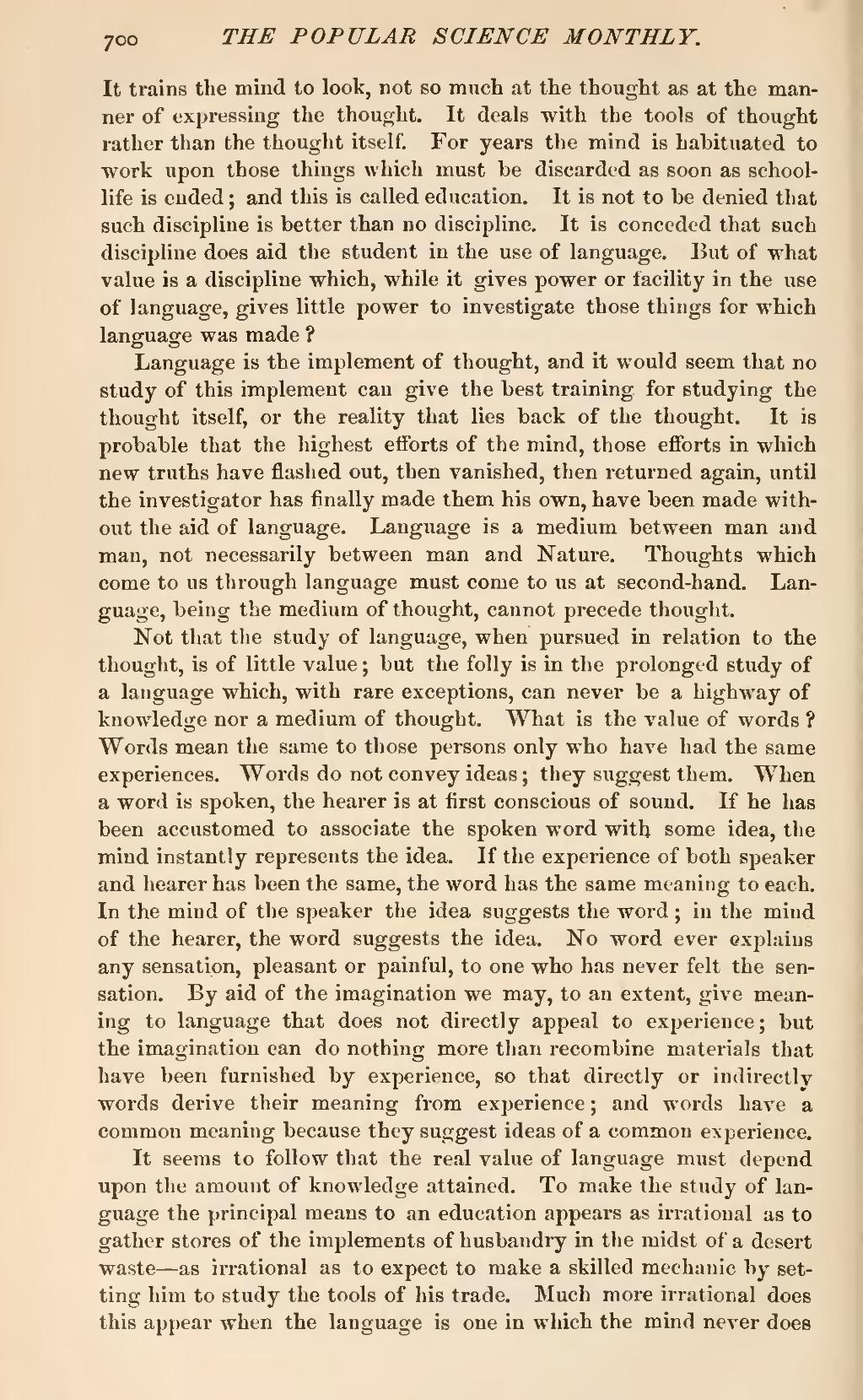It trains the mind to look, not so much at the thought as at the manner of expressing the thought. It deals with the tools of thought rather than the thought itself. For years the mind is habituated to work upon those things which must be discarded as soon as school-life is ended; and this is called education. It is not to be denied that such discipline is better than no discipline. It is conceded that such discipline does aid the student in the use of language. But of what value is a discipline which, while it gives power or facility in the use of language, gives little power to investigate those things for which language was made?
Language is the implement of thought, and it would seem that no study of this implement can give the best training, for studying the thought itself, or the reality that lies back of the thought. It is probable that the highest efforts of the mind, those efforts in which new truths have flashed out, then vanished, then returned again, until the investigator has finally made them his own, have been made without the aid of language. Language is a medium between man and man, not necessarily between man and Nature. Thoughts which come to us through language must come to us at second-hand. Language, being the medium of thought, cannot precede thought.
Not that the study of language, when pursued in relation to the thought, is of little value; but the folly is in the prolonged study of a language which, with rare exceptions, can never be a highway of knowledge nor a medium of thought. What is the value of words? Words mean the same to those persons only who have had the same experiences. Words do not convey ideas; they suggest them. When a word is spoken, the hearer is at first conscious of sound. If he has been accustomed to associate the spoken word with some idea, the mind instantly represents the idea. If the experience of both speaker and hearer has been the same, the word has the same meaning to each. In the mind of the speaker the idea suggests the word; in the mind of the hearer, the word suggests the idea. No word ever explains any sensation, pleasant or painful, to one who has never felt the sensation. By aid of the imagination we may, to an extent, give meaning to language that does not directly appeal to experience; but the imagination can do nothing more than recombine materials that have been furnished by experience, so that directly or indirectly words derive their meaning from experience; and words have a common meaning because they suggest ideas of a common experience.
It seems to follow that the real value of language must depend upon the amount of knowledge attained. To make the study of language the principal means to an education appears as irrational as to gather stores of the implements of husbandry in the midst of a desert waste—as irrational as to expect to make a skilled mechanic by setting him to study the tools of his trade. Much more irrational does this appear when the language is one in which the mind never does
